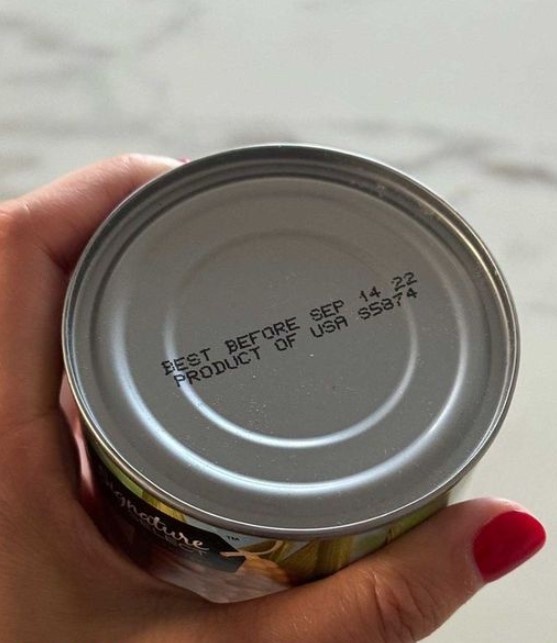Navigating the world of food labels can often feel like a daunting task, especially when it comes to terms like “best by” or “best before.” These labels frequently appear on various food products, including our pantry staples like canned goods.
However, the significance of these dates is often misunderstood, leading to unnecessary food waste. This article aims to clarify what “best by” dates mean, particularly in the context of canned foods such as corn, green beans, and tuna, and provide guidance on how long these items can safely be consumed beyond their indicated dates.
What Does “Best By” Really Mean?
“Best by” dates are not hard expiration dates; instead, they serve as recommendations from manufacturers regarding when a product is expected to be at its peak quality. This means that food items may still be safe to consume after the indicated date, provided they have been stored correctly and show no signs of spoilage. It’s essential to differentiate between these dates and actual expiration dates, as the latter signifies a deadline for safety, while “best by” dates merely reflect freshness.
Canned Corn: A Pantry Staple
Canned corn is a beloved pantry staple in many households, offering convenience and versatility. The good news is that this popular vegetable can typically be safely used for 1 to 2 years beyond its “best by” date if it has been stored properly. To ensure its safety, inspect the can for any signs of damage, such as bulging, rust, or leaks. If the can is intact and has been kept in a cool, dry location, the corn is likely safe to consume, though its texture and flavor may not be as vibrant as when it was fresh.
Canned Green Beans: Another Reliable Option
Canned green beans are a classic side dish that can complement many meals. Much like canned corn, these vegetables can remain safe for consumption for up to 1 to 2 years past their “best by” date. Again, proper storage is crucial. Before using canned green beans, inspect the can for any dents or damages. If the can is compromised, it’s wise to discard the product to avoid potential foodborne illnesses. While the flavor and texture might decline over time, the beans are generally still safe to eat.
Canned Tuna: A Long-lasting Protein Source
Canned tuna is not only a protein-rich food item but also an incredibly versatile ingredient. When stored in a cool and dry environment, canned tuna can often be safely consumed for an impressive 3 to 5 years beyond the “best by” date. However, it’s important to examine the can closely for any signs of damage or deterioration before opening. Once opened, pay attention to changes in odor, texture, or appearance. If the tuna exhibits an off smell or unusual consistency, it’s best to err on the side of caution and discard it.
Maximizing Shelf Life: Storage Tips
To extend the life of your canned goods, adhere to these essential storage tips:
- Keep it Cool: Store canned items in a cool, dry space, away from direct sunlight and temperature fluctuations. Extreme heat can deteriorate the quality and safety of the contents.
- Upright Storage: Always store cans upright to maintain the integrity of the seals. This prevents damage and minimizes the risk of contamination.
- Rotate Stock: Practice the FIFO (First In, First Out) method by placing newly purchased items at the back and using older items first. This strategy ensures that you’re consuming products before they reach their best quality.
- Avoid Damage: Handle cans with care to prevent dents or damage, which can compromise their seals. A compromised can may lead to spoilage and safety concerns.
- Leftover Caution: If you have leftover canned food after use, transfer it to a sealed container and refrigerate it for short-term storage. This helps maintain freshness and reduces waste.
Final Thoughts
In conclusion, understanding “best by” dates is crucial for making informed decisions about food safety and reducing waste. Canned corn, green beans, and tuna can often be enjoyed long after their indicated dates, as long as they have been stored correctly and show no signs of damage or spoilage. Always use your best judgment when assessing food quality, and remember that it’s better to be safe than sorry. By following proper storage practices and regularly inspecting your canned goods, you can maximize their shelf life and enjoy delicious meals without unnecessary waste.
Conclusion :
In summary, understanding “best by” dates on canned foods can significantly reduce food waste and enhance food safety. These dates serve as guidelines for optimal quality rather than strict expiration points. Items like canned corn, green beans, and tuna can often be consumed well past their “best by” dates if they are stored properly and remain undamaged.
By following storage tips and exercising caution, you can enjoy these pantry staples with confidence, ensuring that you make the most of your food without unnecessary waste.










